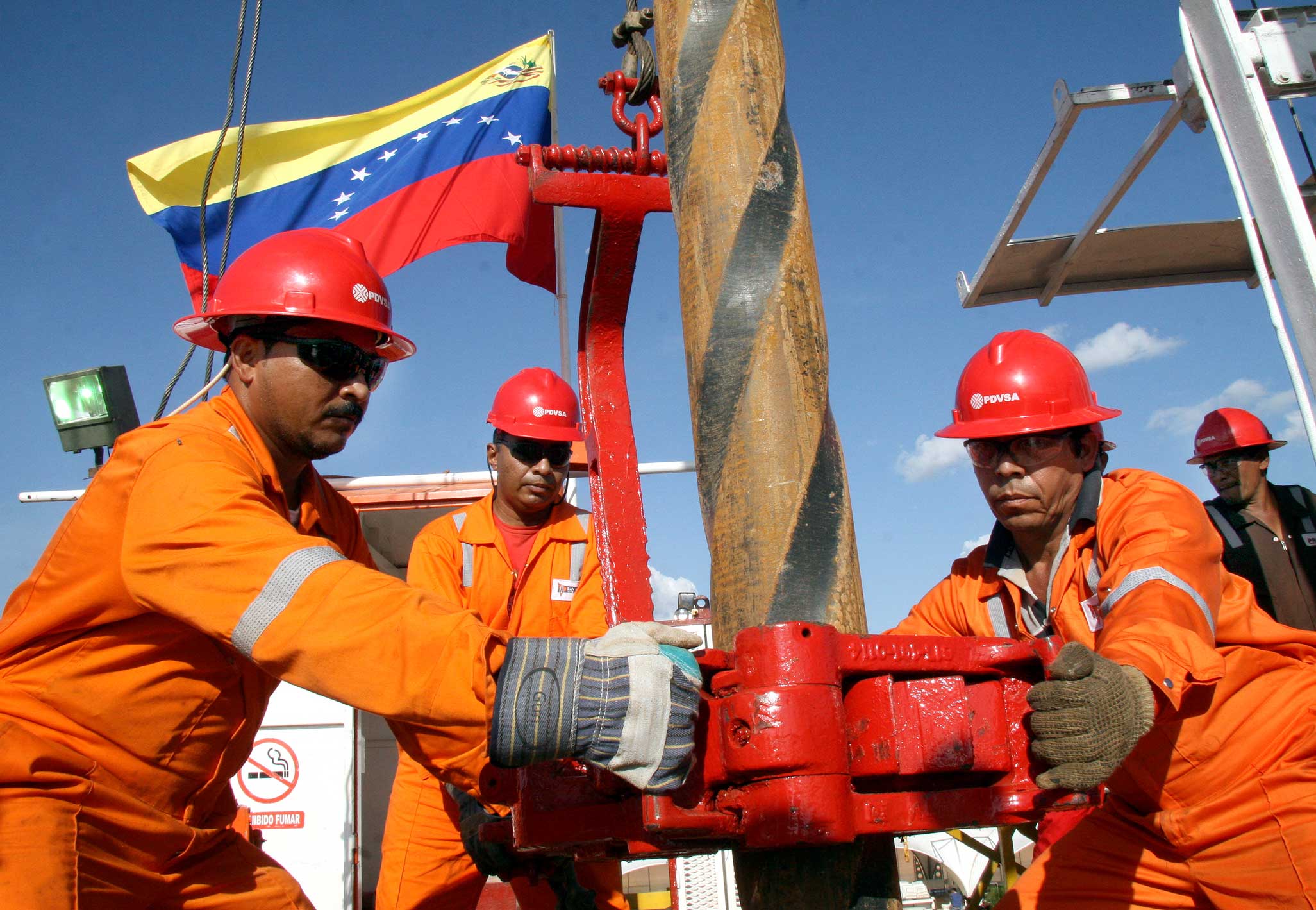Venezuela’s Opposition Proposes Energy Reform to Open Pipelines, Refineries to Foreign Investment
(Reuters) — Venezuela's opposition has drafted a broad proposal for energy sector reform that would allow participation of international companies, a bid to attract support from Big Oil and from U.S. President Donald Trump's administration, according to sources and a summary of the proposal seen by Reuters.
Trump's administration this month canceled a key license for U.S. oil major Chevron to operate in Venezuela, citing President Nicolas Maduro's lack of electoral reforms. Opposition leaders seized the opportunity to ratchet up pressure on Maduro.
The proposed reform to Venezuela's hydrocarbon law sweetens previous plans presented by the opposition in recent years, and may be attractive to international oil companies, including those in the U.S.
It includes shrinking the size of state oil company PDVSA while offering Venezuelan oil and gas fields, refineries and midstream assets to foreign companies. PDVSA's stakes would be open for private bidding.
"Venezuela is opening its energy sector to the world, offering unprecedented investment opportunities and a clear, rules-based framework for private sector leadership," the proposal says.
The U.S. and other Western countries disputed the official results in which Maduro won Venezuela's election last year, his second re-election. The opposition published voting tallies showing Edmundo Gonzalez won.
A delegation representing opposition leaders was at the CERAWeek conference in Houston.
The reform proposal sets out plans to increase oil output above 3 million barrels per day (bpd), a level not seen in 15 years, according to a summary of the document seen by Reuters.
Venezuelan crude output averaged 920,000 bpd last year.
The new proposal would also allow existing partners of PDVSA to shift to more attractive contract terms, which would include a lower take for the government.
International standards for investment protection would be embedded into Venezuela's legal system, the proposal also says.
The government rejected the opposition proposal, with Foreign Minister Yvan Gil calling it a "desperate attempt to gift our sovereignty to foreign interests" in a post on Telegram, adding the opposition was promoting policies to benefit "their foreign allies".
On Tuesday evening, Maduro said on state television that Venezuela is open to international investment in oil, gas and petrochemicals.
Nationalization of the industry, begun two decades ago under former President Hugo Chavez, and debt defaults have led to dozens of lawsuits and arbitrations, some of which are still ongoing. Many creditors are going after Venezuela's crown jewel asset, U.S.-based refiner Citgo Petroleum.
Venezuela sits on the world's largest reserves of crude and Latin America's biggest reserves of natural gas but has seen little investment in recent decades due to political turmoil, nationalist policies and U.S. sanctions.
The opposition has long complained of electoral fraud. There is no sign of progress internally toward a quick resolution of Venezuela's long-standing political crisis.
Related News
Related News

- Enbridge Plans 86-Mile Pipeline Expansion, Bringing 850 Workers to Northern B.C.
- Intensity, Rainbow Energy to Build 344-Mile Gas Pipeline Across North Dakota
- U.S. Moves to Block Enterprise Products’ Exports to China Over Security Risk
- 208-Mile Mississippi-to-Alabama Gas Pipeline Moves Into FERC Review
- Court Ruling Allows MVP’s $500 Million Southgate Pipeline Extension to Proceed
- U.S. Pipeline Expansion to Add 99 Bcf/d, Mostly for LNG Export, Report Finds
- A Systematic Approach To Ensuring Pipeline Integrity
- 275-Mile Texas-to-Oklahoma Gas Pipeline Enters Open Season
- LNG Canada Start-Up Fails to Lift Gas Prices Amid Supply Glut
- Kinder Morgan Gas Volumes Climb as Power, LNG Demand Boost Pipeline Business





Comments